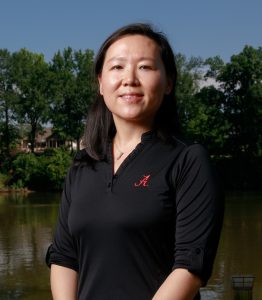
From the UA News Center | The National Oceanic and Atmospheric Administration awarded funding for climate science and community resilience projects involving researchers from The University of Alabama, Sea Grant programs and universities around the Southeast.
NOAA’s Climate Program Office recently announced more than $171 million to support projects aimed at improving U.S. climate challenges. The agency’s newly launched Adaptation Sciences Program will use more than $4.8 million to fund 20 new 2-year projects centered on future flooding impacts in coastal areas.
Dr. Wanyun Shao, assistant professor in UA’s Department of Geography, is part of a team working with the Sewerage and Water Board of New Orleans, Louisiana, to better understand the geographical and temporal variability in rainfall and flooding. The project will help the city create a master plan to prioritize water infrastructure investments over the next five decades by coupling climate data with demographic and behavioral data.
NOAA also awarded $400,000 for four, 1-year projects through its Regional Integrated Sciences and Assessments Program. One of those projects will allow Sea Grant programs and universities in the Southeast U.S. and Caribbean regions to study climate inequities in coastal communities.
Coastal communities are experiencing increased flooding that can cut off access to healthcare facilities. Rising seas lead to saltwater intrusion, impacting water supply and wastewater infrastructure. Floodwaters that cover roads or encroach on residential homes carry pollutants and bacteria. All these threats pose a risk to public health.
The alliance includes experts at Marine Extension and Georgia Sea Grant, Florida Sea Grant, Mississippi-Alabama Sea Grant, Puerto Rico Sea Grant, the University of Virgin Islands and the Centers for Disease Control and Prevention.
“Regional collaboration on the impact of climate on populations is key to understanding best practices and how to leverage them at the local level in terms of community health,” said Scott Rayder, executive director of the Alabama Water Institute. “By teaming together, we will be able to identify problems and solutions faster in service of these at-risk populations and provide better health outcomes for these communities.”
Over the next year, the team will work to identify the most vulnerable communities in the Southeast and Caribbean regions and cultivate partnerships with local leaders, businesses and public health professionals to improve communication, share existing tools, and identify information and resource needs. They will also host workshops to gather input that will inform policies, programs and trainings needed to design community-led solutions to reduce health disparities and inequities in these regions.